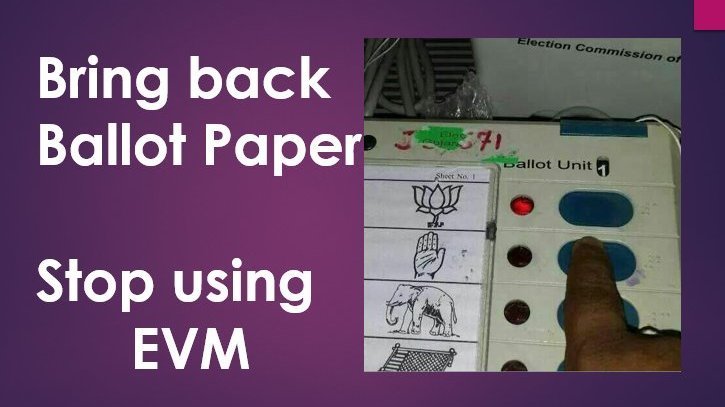EVM = Electronic Voting Machines
Press release
Contact: The Grayzone, [email protected]; Ariel Gold, [email protected], 520-599-5330
When : 2 PM, Tuesday, March 10, 2020
Where : Outside the Organization of American States, 200 17th St NW, Washington, DC 20006
In light of the clear irregularities in the voting results in the 2020 Democratic presidential primaries and the structural barriers to voter participation, The Grayzone and CODEPINK call on the Organization of American States (OAS) to provide International emergency election observers in the Democratic primary elections of 2020.
“The OAS must send a team of emergency electoral monitors to the United States to guarantee independent scrutiny in presidential primaries that have already been affected by clear irregularities and by the systematic and highly discriminatory obstruction of citizens’ right to vote” , says Grayzone editor Max Blumenthal.
Since its founding in 1962, the OAS has sent hundreds of electoral monitoring teams to countries throughout the Western Hemisphere. But only once in its history has it monitored an American election: in 2016, after Donald Trump claimed that the vote would be manipulated.
In October 2019, the OAS accused the Bolivian government of irregularities in the counting of votes during the country’s presidential elections. The organization issued a formal statement expressing “deep concern and surprise about the drastic change and difficult to explain in the trend of preliminary results after the closing of the polls.” Within days, a military coup was launched that resulted in the forced removal of the presidential election winner, President Evo Morales, as well as the installation of a brutally repressive government.
“While the OAS findings in Bolivia have been widely discredited by researchers from the Center for Economic Policy Research (CEPR) and the Massachusetts Institute of Technology (MIT), it corresponds to this organization to maintain for the United States, the same standards that apply in the countries selected by that country to apply a regime change, ”says CODEPINK co-founder Medea Benjamin.
Background on irregularities and systematic discrimination against voters in the United States
Democratic primaries have been the scene of severe discrimination against minority, poor and elderly voters. Throughout the electoral struggle, voters were forced to travel unusually long distances to reach the polling stations, and take long lines of up to four hours to cast their votes. The problem has been particularly accentuated in impoverished and minority areas, as well as within the student population.
The League of United Latin American Citizens (LULAC), the oldest Latino civil rights organization in the United States, denounced a “calculated effort to suppress the minority vote during Super Tuesday [the primary 3 March], calling the organized voter suppression campaign “a danger to democracy.” LULAC said it documented incidents of voter suppression in areas with minorities during the primary elections [March 3] in 14 states.
During the California primaries, voters across Los Angeles County reported seemingly endless lines at the newly designated polling stations, forcing many voters to wait up to three or four hours to cast their vote. “I had never seen such a long line to vote. At 7 pm, the queue almost reached the parking lot, ”observed a journalist.
In Texas, the Leadership Conference Education Fund found that 750 voting centers had been closed across the state since 2012, which obstructs poor and minority voters’ access to voting. For 2018, there was only one voting center for every 7700 residents, less than one for every 4000 existing before the massive closure of the voting centers six years before.
Although the results of the Texas primary were announced on March 3, it has been revealed that 10% of the votes were not counted in 44 Dallas County venues. “This is tremendously detrimental to our local democracy,” the Dallas County Commissioner lamented.
The 2020 Democratic presidential primaries were also marred by unusual disparities between the ballot box polls and the computerized count which is difficult to verify.
For example, the counting of computerized votes in the South Carolina primaries differed substantially from the ballot box polls, again exceeding the margin of error. It was there that Biden’s vote count exhibited the greatest increase (+ 8.3%) compared to its projection in these polls.
Meanwhile, in the New Hampshire primary the computerized vote count was substantially greater than the margin of error of the ballot box survey. The total of unverified official votes generated by computer in favor of Buttigieg represented a huge increase (12%) compared to the ballot box surveys.
The irregularities in the elections were also evident in the Iowa assemblies, where Senator Bernie Sanders and Pete Buttigieg received the same number of delegates in a constituency despite the fact that Sanders won a significantly larger portion of votes. Instead of granting Sanders a count of delegates according to their total votes, the tie of the candidates in the precinct was resolved by a lottery.
The United States Agency for International Development (USAID), an arm of the United States government, known for meddling in foreign elections, stated in its 2015 election guide: “Fraud Detection: Surveys In the mouth of the ballot box they provide data that generally indicates how people voted. A discrepancy between the options reported by the voters at the exit and the official results may suggest, but not prove, that the results have been altered. ”
According to the standards that USAID applies to other nations, these worrying discrepancies should be investigated as signs of fraud and potential manipulation of election results.
The United States is one of the only industrialized countries in the world that depends exclusively on computerized vote counting, which is neither transparent nor publicly auditable. Most democracies verify election results by comparing the computerized count with the ballots, which are counted manually and can be observed publicly. This opaque system requires external control.


















